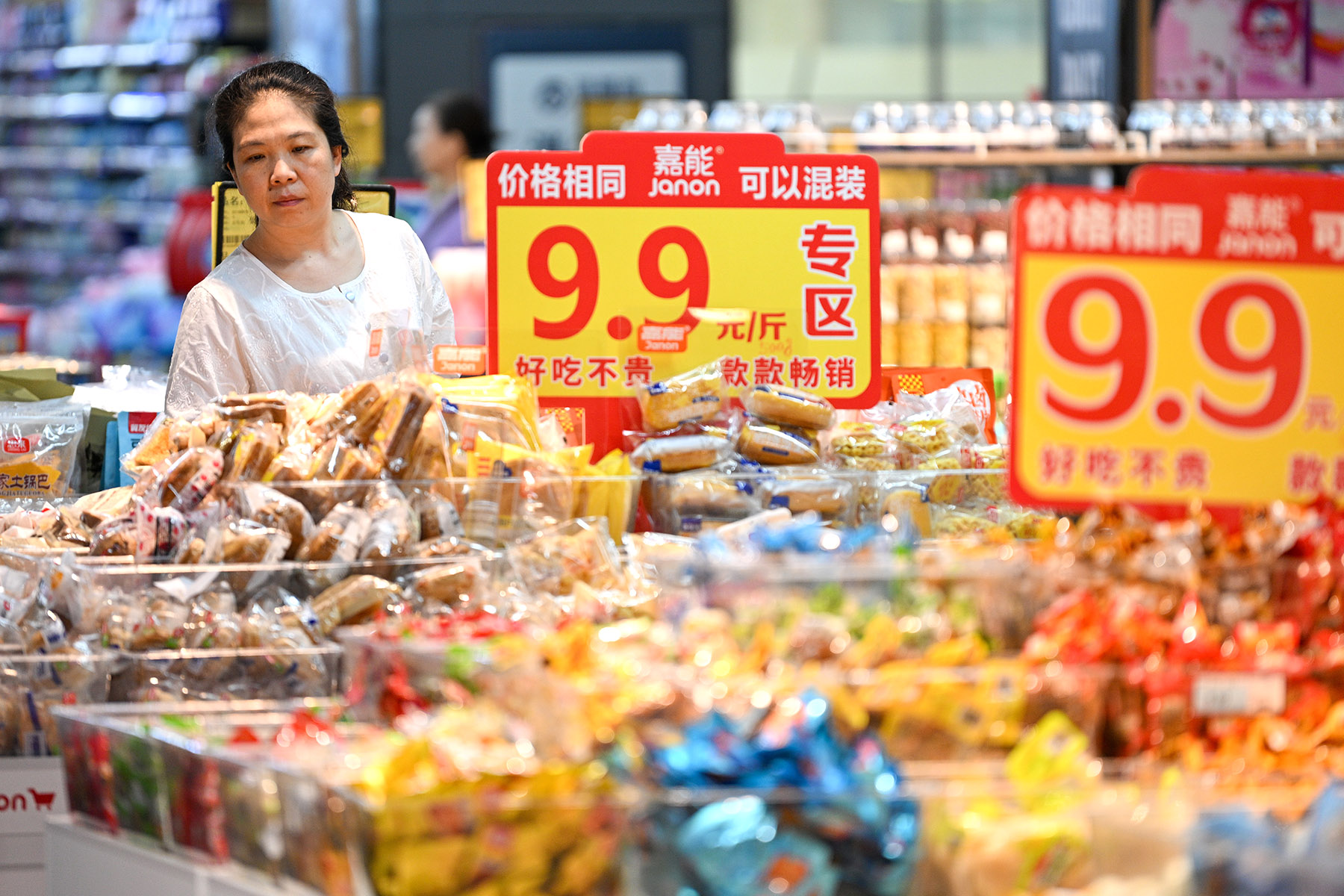Main gauge of inflation falls 0.1 percent in May, same as in April

China's price levels remained subdued in May, leaving ample room for further monetary easing and robust fiscal stimulus in the remainder of the year, analysts said on Monday.
They said more policy support is needed to shore up demand in the world's second-largest economy, as policymakers navigate a more complicated and challenging external environment amid trade tensions with the United States.
Their comments came as data released by the National Bureau of Statistics showed that the country's consumer price index, the main gauge of inflation, fell by 0.1 percent year-on-year in May, the same as in the previous month.
READ MORE: China's consumer inflation, PPI down in May
Wen Bin, chief economist at China Minsheng Bank, linked the subdued consumer prices to seasonal factors and a decline in oil prices, while noting the improvement in core CPI, suggesting the resilience of the domestic economy.
The core CPI, which excludes volatile food and energy prices and is deemed a better gauge of the demand-supply relationship, increased 0.6 percent year-on-year in May, up from a 0.5 percent rise in April, NBS data showed.
On factory-gate prices, Wen said the decline reflected ongoing imported price pressures. "Although risk appetite increased early in the month due to favorable progress in US-China talks, with a slight rebound in commodity prices, excluding gold, commodity prices later dropped again as tariff threats resurfaced," he said.
China's producer price index, which gauges factory-gate prices, dropped by 3.3 percent year-on-year in May, widening from a 2.7 percent fall in April, the NBS said.
Looking ahead, Wen said he expects CPI to rebound modestly but remain low in the near term, saying supportive macroeconomic policies would bolster core CPI growth.
"A combination of incremental and existing policy measures are working in tandem to improve the supply-demand structure, which will support prices in relevant sectors. Increased travel demand during the summer will also drive up service prices."
As for PPI, Wen said conditions may gradually improve, though a return to positive territory will take time.
Considering base effects and current trends in consumer goods, energy, and industrial prices, Feng Lin, executive director of the research and development department at Golden Credit Rating International, said she expects consumer prices to remain flat in June, with the year-on-year drop in PPI likely staying around 3.3 percent.
"With overall prices staying at low levels, promoting a reasonable rebound in prices will become an important macro policy goal in the second half of the year," she said. "This also opens up room for more proactive fiscal policies to boost consumption and investment, as well as further interest rate cuts by the central bank."
Yuan Haixia, dean of the research institute at rating agency CCXI, said that China continues to face a complex and challenging external environment while domestic cyclical and structural economic issues remain intertwined.
While production remains relatively strong, domestic demand is only marginally improving and still weak overall as shown by subdued price levels, despite resilient external demand, Yuan said. "Policymakers should take advantage of the current policy window and intensify countercyclical measures in the short term."
ALSO READ: China's CPI up 0.1% month on month, down 0.1% year-on-year in April
Yuan said that there is still scope for one to two more cuts in the reserve requirement ratio and interest rates during the remainder of the year, given the country's relatively high real interest rates amid low inflation and its ample policy space compared to economies like the United States and Japan.
On the fiscal front, stronger central government fiscal support is needed to expand domestic demand while around 1 trillion yuan ($139.22 billion) in additional fiscal funding could be introduced at a proper time to stabilize growth and improve expectations, she said.
Yuan added that a balanced approach to encourage both consumption and investment is needed. Measures could include short-term cash subsidies, midterm tax reforms, and long-term improvements in income distribution to boost consumption. In parallel, investment priority should shift from physical infrastructure toward human capital, with a focus on raising investment efficiency.
Contact the writers at ouyangshijia@chinadaily.com.cn


